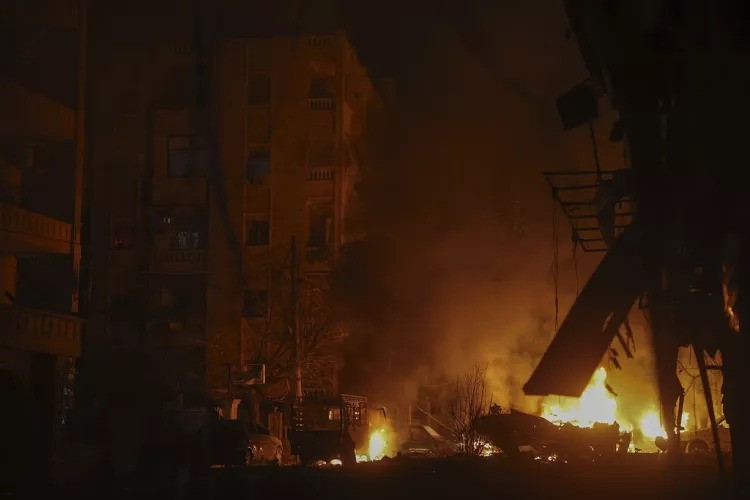|
Getting your Trinity Audio player ready...
|
Why Should Israel Care About Syria? A Strategic Imperative
By: Fern Sidman
The ongoing conflict in Syria presents significant implications for Israel’s security and regional strategy. As the Syrian civil war continues to unfold, recent advances by Sunni rebel forces against the Assad regime have the potential to reshape the balance of power in the Middle East. Israel has a vested interest in closely monitoring these developments, as they could either enhance its strategic position or introduce new threats.
For years, Iran has pursued a “Shia Crescent” strategy to consolidate its influence across the Middle East. This geopolitical framework stretches from Iran through Iraq and Syria to Lebanon, with Hezbollah serving as a pivotal force against Israel. Syria, under the Assad regime, has been a cornerstone of this strategy, providing Iran with a vital corridor to arm Hezbollah and deploy militias near Israel’s northern border, including the Golan Heights.
The Assad regime’s cooperation with Iran allows the transfer of advanced weaponry to Hezbollah, strengthening the group’s capacity to target Israeli civilians and infrastructure. Additionally, Iranian-backed militias stationed in Syria pose a direct and immediate threat to Israeli sovereignty, creating a volatile front that requires constant vigilance.
Recent gains by Sunni rebel groups in Syria offer a rare opportunity to disrupt Iran’s strategic ambitions. If these forces succeed in ousting Shiite elements from Syria, the “Shia Crescent” could be severed, significantly weakening Iran’s regional influence. Such a development would isolate Lebanon, reduce Hezbollah’s access to advanced weaponry, and diminish the Iranian threat along Israel’s northern border.
While the Sunni rebels are not allies of Israel, their opposition to Iran and its proxies aligns with Israeli interests. A fractured Shia Crescent would force Hezbollah to operate under constrained conditions, potentially reducing its capacity to launch large-scale attacks against Israel. This shift could also lead to a reconfiguration of power dynamics in the region, creating opportunities for Israel to strengthen its security posture.
The potential weakening of the Iran-Hezbollah axis presents several advantages for Israel. Severing Iran’s supply lines to Hezbollah could significantly reduce the group’s military capabilities, offering Israel a respite from constant security threats along its northern border.
A rebel victory in Syria would isolate Iran, curtailing its ability to project power and influence in the Levant. This would not only benefit Israel but also align with the interests of other regional players, such as Saudi Arabia and the Gulf states.
The removal of Iranian militias and proxies from southern Syria would decrease the likelihood of cross-border skirmishes and terrorist activity in the Golan Heights, providing greater stability for Israel.
A weakened Iran would enable Israel to enhance its diplomatic efforts and strengthen alliances with Sunni Arab nations, further consolidating its position in the region.
Despite the potential benefits, the situation in Syria remains highly complex and fluid. Sunni rebel factions are diverse and often fractured, with some harboring extremist ideologies that could pose new risks to Israel. Additionally, the prospect of a power vacuum in Syria could lead to prolonged instability, allowing other hostile actors, such as ISIS remnants, to resurface.
Israel must also consider the potential for unintended consequences. While the weakening of Iran and Hezbollah is desirable, an empowered Sunni insurgency could escalate into a new threat. The Israeli government must carefully navigate these dynamics, balancing short-term tactical gains against long-term strategic stability.
Israel cannot afford to remain indifferent to the developments in Syria. The potential to disrupt Iran’s Shia Crescent and weaken Hezbollah represents a significant opportunity to enhance national security and reshape the regional balance of power. However, the complexity of the Syrian conflict necessitates a cautious and calculated approach.
By closely monitoring the situation and aligning its policies with evolving realities, Israel can maximize the benefits of a shifting landscape while mitigating potential risks. The stakes are high, but with strategic foresight, Israel can turn the turmoil in Syria into an advantage that strengthens its position in the Middle East.






Would replacing pro-Iran terrorists with pro-Turkey terrorists really “enhance national security” of Israel?!?